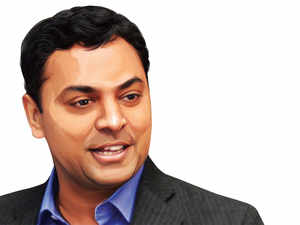
Well, we’ll never know whether his successor, Krishnamurti Subramanian, who the government appointed as CEA on Friday, is among those who coveted the job ferociously or was just plain lucky. But there’s no denying that the job that carries a fixed salary of Rs 80,000 per month (as advertised earlier this year), carries enough prestige to more than make up for the relatively trifling salary by today’s standards.
There’s also no denying that Subramanian, who at 47 years is among the youngest to be appointed CEA, has what it takes to be in a long line of illustrious CEAs. A list that includes the likes of IG Patel, Manmohan Singh, who went on to serve as prime minister for two successive terms, Bimal Jalan, Shankar Acharya and, of course, the new CEA’s guide and mentor, Raghuram Rajan.
Of course, his appointment (for a period of three years), which comes only a couple of months before the presentation of the interim budget on February 1 and less than six months before the country goes to the polls, might raise some eyebrows. But, to the credit of successive governments, the CEA’s appointment has largely been apolitical. So there is no reason to doubt that Subramanian will be able to complete his tenure, regardless of what happens in the general elections in 2019.
With a PhD from the University of Chicago-Booth School of Business (under professor Luigi Zingales and, yes, Raghuram Rajan), and an impressive IIT-IIM lineage, Subramanian packs all the right academic credentials. His PhD dissertation earned him the Ewing Marion Kauffman Foundation Dissertation Fellowship, which recognises the top 15 PhD dissertations across all disciplines every year.
What sets him apart, and hopefully will also ensure his suggestions are more firmly rooted in Indian ground realities, is the fact that he has not been parachuted into the job from overseas. On the contrary, he has considerable familiarity with presentday India as he has been teaching at the Indian School of Business, Hyderabad, for a number of years now and has served on various expert committees set up by the Securities and Exchange Board of India and the Reserve Bank of India (including those on corporate governance and on governance of banks).
A prolific writer and frequent contributor to business dailies, including The Economic Times, and a strong advocate of financial sector reform, he presently serves as a member of SEBI’s Standing Committees on Alternative Investment Policy, Primary Markets, Secondary Markets and Research. He is also on the boards of Bandhan Bank, the microfinance agency-turned-bank and the first to be licensed after independence in eastern India, the National Institute of Bank Management, and the RBI Academy.
The immediate task before Subramanian is to get cracking on the Economic Survey 2018-19, which is placed in Parliament usually the day before the finance minister presents his Budget. Remember, the CEA is the main author of the Economic Survey. He is numero uno among government’s policy advisors on the economy and though he might not be in the limelight like, say, the RBI governor, he is the brain behind many government policy actions.
It’s true that the Survey often reads like the wish list of the chief economic advisor. True also that governments seldom act on the blueprint outlined in the document; at least not immediately. But what is undeniable is that many of the government’s policy initiatives first find expression in the Survey. Think Aadhaar (then known as unique identity number) and direct benefit transfer (DBT), an idea that was mooted in the Survey under the UPA government but found fruition under the NDA.
The forthcoming Economic Survey will be the first opportunity for Subramanian to outline his vision for fostering faster, and more inclusive, economic growth as well as the future course of reforms. To its credit, the government has largely resisted populism and stuck to its reform credentials so far. However, the interim budget ¡X the last budget of this government before 2019 Lok Sabha elections ¡X is expected to have some announcements that could appeal to different sections of society. In contrast, the Survey is likely to eschew populism and lay out a reform road map that the government could undertake if voted back to power.
Subramanian has his task cut out. Over the years, successive CEAs have tried, and largely succeeded, in giving a new sheen to what was, till not so long ago, a rather dull document. Expectations from the Survey are much higher today than, say, a decade ago. In less than six weeks from now, Subramanian will have to be ready with a document that matches up to heightened expectations. Here¡¦s wishing him all the best.
Download The Economic Times News App to get Daily Market Updates & Live Business News.
Subscribe to The Economic Times Prime and read the ET ePaper online.
Download The Economic Times News App to get Daily Market Updates & Live Business News.
Subscribe to The Economic Times Prime and read the ET ePaper online.









 Get Unlimited Access to The Economic Times
Get Unlimited Access to The Economic Times
